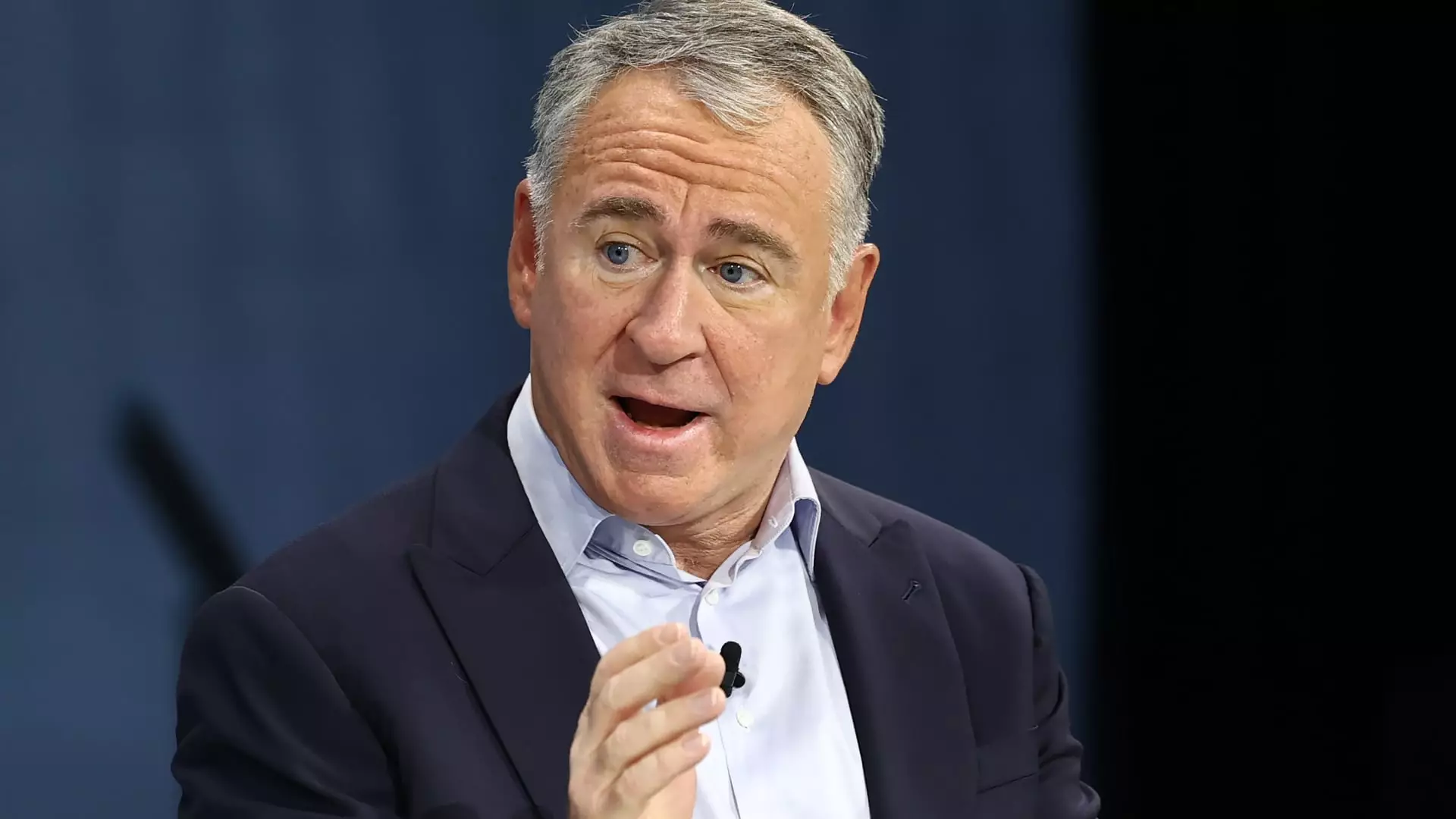In a recent statement at the UBS Financial Services Conference, Ken Griffin, the CEO of Citadel, raised significant concerns regarding the implications of President Donald Trump’s confrontational trade policies. Griffin, who has been an ally of Trump, pointed out that the harsh language and tactics being employed mark a dangerous departure from traditional diplomatic and trade negotiations. He warned that such rhetoric not only influences investor sentiment but could also undermine the long-standing relationships that the U.S. has established with international trading partners.
Griffin’s remarks come in the wake of Trump’s decision to impose aggressive tariffs—25% on steel and aluminum and a continuing 10% on Chinese imports. The billionaire hedge fund manager emphasized that these measures could have a chilling effect on long-term planning for multinational corporations. He articulated that when companies are faced with uncertain trade relations and punitive tariffs, their ability to make informed investment decisions over the coming decades becomes significantly hampered. The potential destabilization of trade agreements creates an environment rife with unpredictability that is counterproductive for global economic growth.
The psychological impact of Trump’s combative trade negotiations extends beyond mere numbers and economics. Griffin pointed out that the aggressive commentary from the administration leads CEOs and policymakers to question the reliability of the U.S. as a trading partner. This concern can drastically alter corporate behavior, pushing companies to reconsider or delay investments that are considered critical for future growth.
Furthermore, Griffin has previously indicated an association between tariff policies and the rise of crony capitalism—a phenomenon characterized by the collusion between government entities and private businesses. He highlighted that reliance on tariffs for protection can create an environment where business decisions are influenced more by political connections than by market forces. This relationship, he argues, can lead to inefficiencies in the market and, ultimately, to economic stagnation.
Griffin’s warning serves as a critical reminder of the importance of maintaining constructive and thoughtful discourse in trade negotiations. A cooperative approach, rather than one rooted in antagonism, could yield better outcomes for both the U.S. and its trading partners. His perspective reinforces the idea that successful international trade hinges on trust and mutual benefit, rather than a competitive standoff.
The current trade climate, exacerbated by combative rhetoric and abrupt policy shifts, poses significant challenges for both investors and multinational corporations. If business leaders are to confidently navigate the complexities of international trade, a shift toward more productive dialogues and stable relations will be essential. Griffin’s insights underscore the urgent need for reevaluating the approach to trade policy, aiming for unity and cooperation over division and uncertainty.

